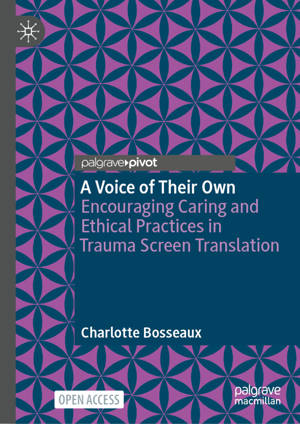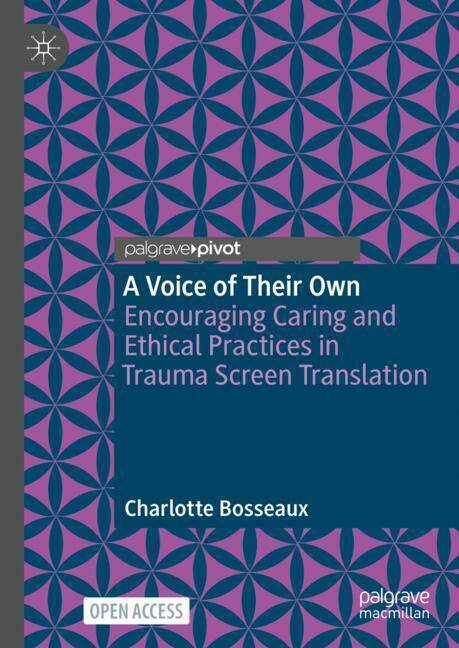
- Afhalen na 1 uur in een winkel met voorraad
- Gratis thuislevering in België vanaf € 30
- Ruim aanbod met 7 miljoen producten
- Afhalen na 1 uur in een winkel met voorraad
- Gratis thuislevering in België vanaf € 30
- Ruim aanbod met 7 miljoen producten
Zoeken
A Voice of Their Own
Encouraging Caring and Ethical Practices in Trauma Screen Translation
Charlotte Bosseaux
Hardcover | Engels
€ 52,95
+ 105 punten
Omschrijving
This open access book explores which audiovisual translation methods or techniques are the most ethical when translating personal narratives dealing with trauma and emotions, and provides good practice guidelines for different stakeholders (audiovisual translators, Language Service Providers, charities, survivors and filmmakers) to ensure that the voices of those who have suffered from trauma and Gender-Based Violence are ethically conveyed on-screen. It also shows how subtitlers cope with the translation of challenging sensitive material. The work described in this book is based on Prof Bosseaux's Ethical Translation project and is underpinned by a practical component: a multilingual documentary featuring women who have gone through traumatic events and whose first language is not English. Above all, the research emphasises the importance of filming and translating ethically with a focus on making sure survivors and audiovisual translators' voices are fully heard through respectful translation. This book showcases the theories and methods used and developed throughout the Ethical Translation project and the results of the research conducted, ultimately demonstrating the importance of carrying out practice-based research and encouraging collaboration between academics, practitioners and stakeholders to produce research that can be of use to, and be applied by, these groups.
Specificaties
Betrokkenen
- Auteur(s):
- Uitgeverij:
Inhoud
- Aantal bladzijden:
- 144
- Taal:
- Engels
Eigenschappen
- Productcode (EAN):
- 9783031904318
- Verschijningsdatum:
- 8/06/2025
- Uitvoering:
- Hardcover
- Formaat:
- Genaaid
- Afmetingen:
- 148 mm x 210 mm

Alleen bij Standaard Boekhandel
+ 105 punten op je klantenkaart van Standaard Boekhandel
Beoordelingen
We publiceren alleen reviews die voldoen aan de voorwaarden voor reviews. Bekijk onze voorwaarden voor reviews.











